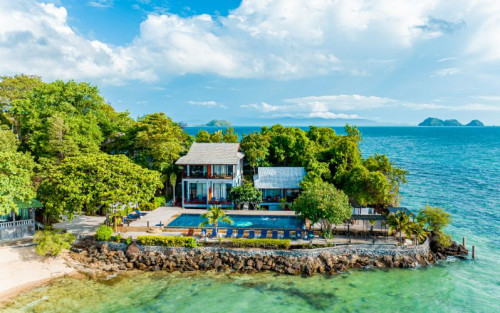

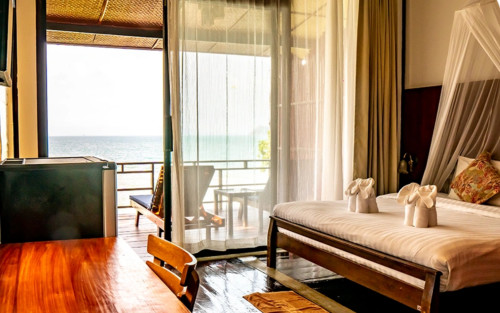

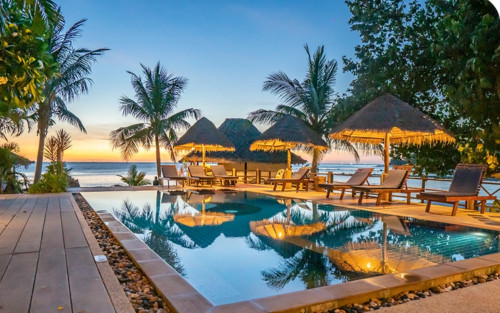




Holina Rehab
Verified Center
This provider's information has been quality-checked by Recovery.com's Research Team for accuracy and completeness, including center verification through appropriate third-party organizations.
Treatment Focus
This center treats substance use disorders and co-occurring mental health conditions. Your treatment plan addresses each condition at once with personalized, compassionate care for comprehensive healing.
Primary Level of Care
Offering intensive care with 24/7 monitoring, residential treatment is typically 30 days and can cover multiple levels of care. Length can range from 14 to 90 days typically.
Treatment Focus
This center treats substance use disorders and co-occurring mental health conditions. Your treatment plan addresses each condition at once with personalized, compassionate care for comprehensive healing.
Primary Level of Care
Offering intensive care with 24/7 monitoring, residential treatment is typically 30 days and can cover multiple levels of care. Length can range from 14 to 90 days typically.
Private Pay
You pay directly for treatment out of pocket. This approach can offer enhanced privacy and flexibility, without involving insurance. Exact costs vary based on program and length of stay. Contact the center for specific details.
Holina Rehab
Holina Rehab
About Holina Rehab
Holina Rehab is a 12-Step resort offering a harmonious mix of insightful talk therapies, holistic health treatments, and spiritual practices, ensuring well-rounded recovery care for a variety of addictions, emotional challenges, and trauma. Licensed by the Thailand Ministry of Health, they provide multiple levels of care, including detox, primary, secondary, aftercare, and sober living, along with a higher-than-average number of weekly individual sessions.
Reconnect with Mind, Body, & Spirit
Holina Rehab blends traditional and holistic therapies to foster deep healing and self-discovery. Through daily group sessions and 4-8 weekly individual sessions, clients address underlying psychological issues, explore family dynamics, and develop effective coping strategies. Creative therapies like psychodrama, sound healing, and gender-specific circles provide safe ways to express and process complex emotions. Clients engage in meditation, yoga, and swimming for physical and mental well-being, while ice baths and saunas support detoxification and overall recovery.
Recharge in Affordable, Beachfront Luxury
Holina Rehab offers a range of accommodations to suit different preferences, from private villas with plunge pools to deluxe bungalows to spacious shared rooms. Thoughtfully designed to offer tranquility and modern comforts, each space has an en-suite bathroom, desk and chair, smart TV with streaming services, blackout curtains, and is cleaned twice weekly. The soothing sounds of the ocean and sunset views make each room its own paradise.
Reinforce Progress with Ongoing Care
Holina Rehab’s aftercare program provides ongoing support through weekly 45-minute video calls with their therapeutic aftercare team, helping clients stay on track as they transition back home or to work. This free 6-month program reinforces recovery strategies, encourages 12-Step engagement, and offers guidance through unexpected challenges, ensuring long-term success.

Highlights from the Center
Highlights
These highlights are provided by and paid for by the center.
Holistic Approach
Private Beach
Addiction Recovery
Trauma Treatment
Center Overview
Treatment Focus
This center treats substance use disorders and co-occurring mental health conditions. Your treatment plan addresses each condition at once with personalized, compassionate care for comprehensive healing.
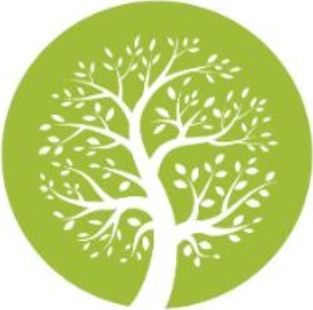
Holina Rehab
Pricing and Program Length
Estimated Center Costs
The cost listed here ($9,700-$17,700 USD / 28 days), is an estimate of program cost. Center price can vary based on program and length of stay. Contact the center for more information. Recovery.com strives for price transparency so you can make an informed decision.




Recovery.com Verified Listing
Recovery.com verified that the name, location, contact information and license to operate for this treatment provider are valid and up-to-date.

Licensed by Thailand Ministry of Health
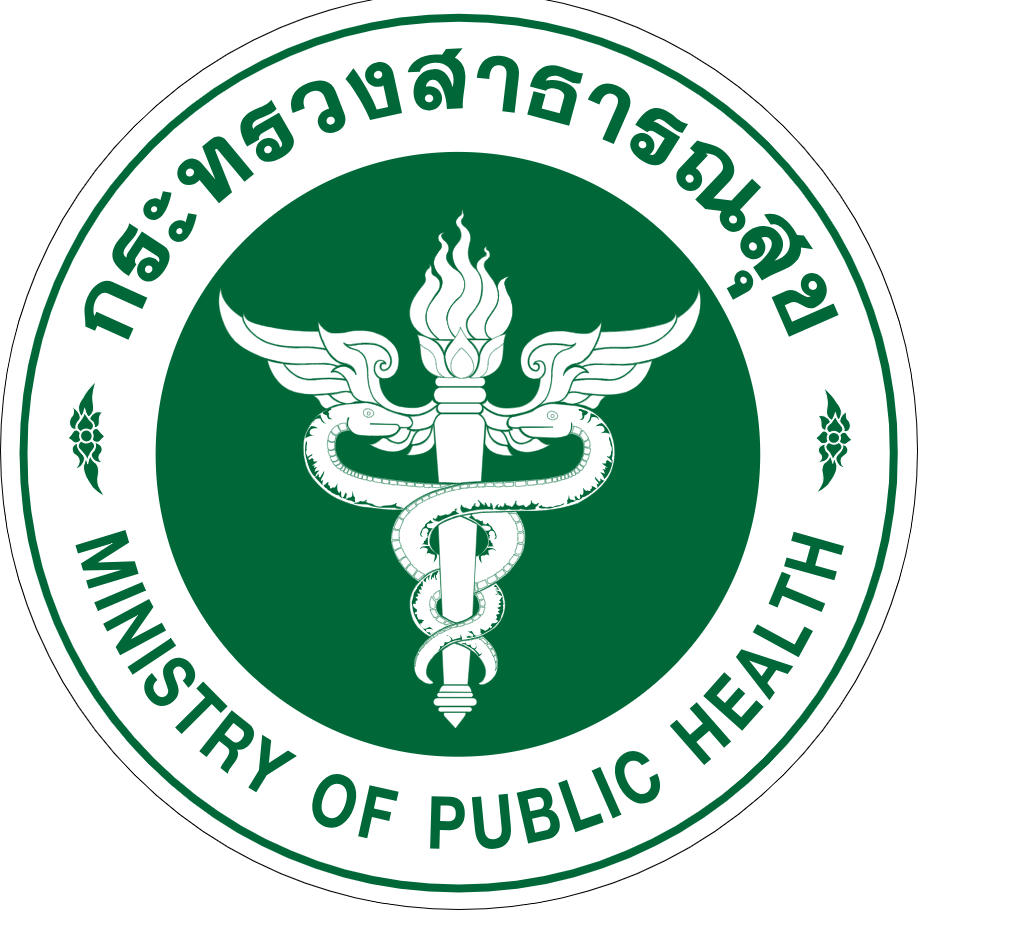
Licensed International Rehab
Recovery.com is an independent, third-party mental health resource. Verification does not imply endorsement and does not guarantee the quality of treatment services.
Meet Your Care Team

Yossi Zubari
Founder

Prah Olarn Pengsakul
Founder

Ian Young
Treatment Manager
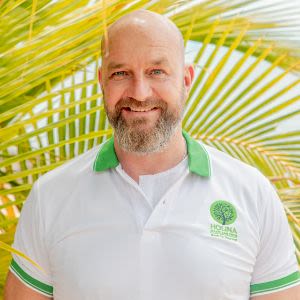
Marc Rower
Psychotherapist

Richard Pike
Clinical Manager
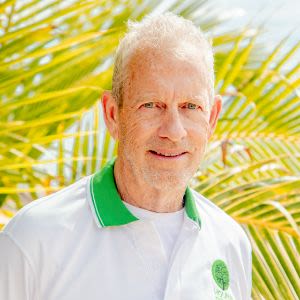
William Morgan
Senior Practitioner

Lee Brage
Senior Support Team Leader
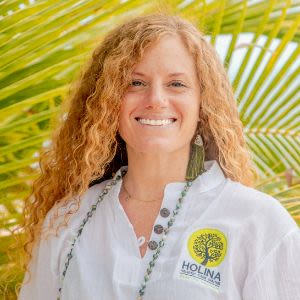
Beth Parasmo
Holistic Therapist
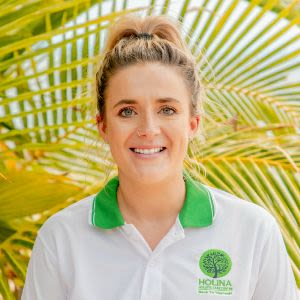
Cherry Hardiman
Support Staff

Dafna Bilchinsky
Pyschotherapist & Social Worker
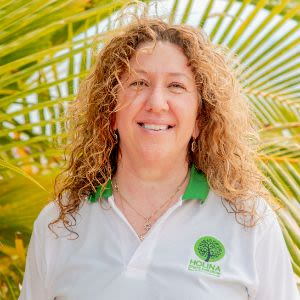
Dr. Aviva Wolf
Consultant Psychiatrist
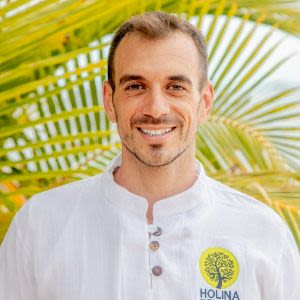
Eviatar Azran
Pyschodrama Therapist

Ewa Juszczyk
Somatic Therapist
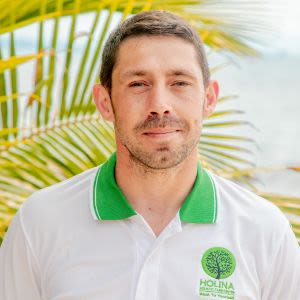
Grant Cambell
Support Staff

Hamutal Cohen
Pychologist & Pyschotherapis

Justine Buenaventura
Restauranteur & Nutritionist
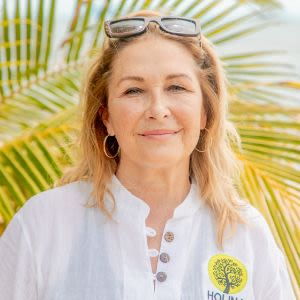
Mandy Moore
Recovery Team Facilitator

Noa Rubin
Pyschotherapist

Nurse Tanya
Senior Nurse
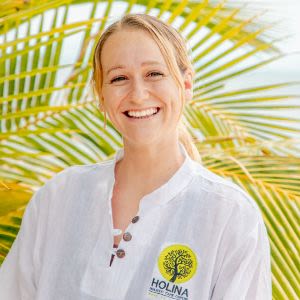
Stephanie Hooper
Support Team Coordinator & Recovery Facilitator

Steve Driver
Holina Consultant
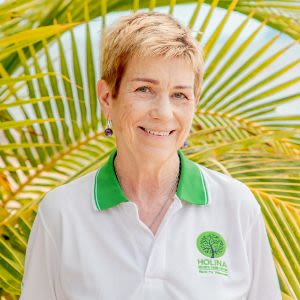
Susette Sacker
Support Staff
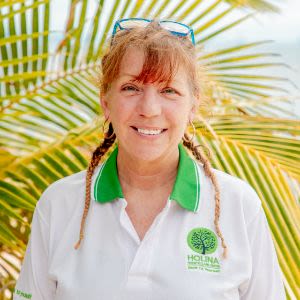
Vie Garand
Recovery Facilitator Team

AK
Support Staff
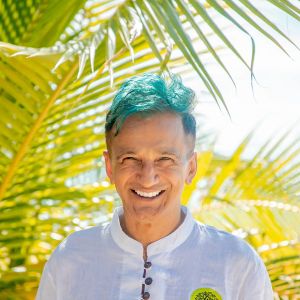
Rafael
Therapist

Nurse Pond
Nurse
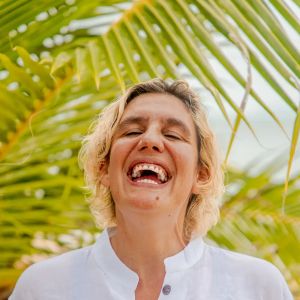
Tanya Van Leeuwen
Recovery Facilitators Team
Your Care Options
Specializations
Alcohol
Using alcohol as a coping mechanism, or drinking excessively throughout the week, signals an alcohol use disorder.
Anxiety
Anxiety is a common mental health condition that can include excessive worry, panic attacks, physical tension, and increased blood pressure.
Cocaine
Cocaine is a stimulant with euphoric effects. Agitation, muscle ticks, psychosis, and heart issues are common symptoms of cocaine abuse.
Drug Addiction
Drug addiction is the excessive and repetitive use of substances, despite harmful consequences to a person's life, health, and relationships.
Young Adults
Emerging adults ages 18-25 receive treatment catered to the unique challenges of early adulthood, like college, risky behaviors, and vocational struggles.
Prescription Drugs
It's possible to abuse any drug, even prescribed ones. If you crave a medication, or regularly take it more than directed, you may have an addiction.
Trauma
Some traumatic events are so disturbing that they cause long-term mental health problems. Those ongoing issues can also be referred to as "trauma."
Who We Treat
Executives
Executive treatment programs typically directly support the needs of people who manage businesses and may provide flexible schedules and office space to allow work during treatment.
Young Adults
Emerging adults ages 18-25 receive treatment catered to the unique challenges of early adulthood, like college, risky behaviors, and vocational struggles.
LGBTQ+
Addiction and mental illnesses in the LGBTQ+ community must be treated with an affirming, safe, and relevant approach, which many centers provide.
Men and Women
Men and women attend treatment for addiction in a co-ed setting, going to therapy groups together to share experiences, struggles, and successes.
Midlife Adults
For adults ages 40+, treatment shifts to focus on the unique challenges, blocks, and risk factors of their age group, and unites peers in a similar community.
Pregnant Women
Addiction and mental health treatment meets the clinical and psychological needs of pregnant women, ensuring they receive optimal care in all areas.
Professionals
Busy, high-ranking professionals get the personalized treatment they need with greater accommodations for work, privacy, and outside communication.
Treatment Services
Detox
Detox fully and safely removes toxic substances from the body, allowing the next steps in treatment to begin with a clean slate.
Detox (on-site with residential)
This is often the first step of addiction treatment. For many people, it's dangerous to detox without proper medical support.
Licensed Primary Mental Health
Some primary care providers offer mental health diagnosis and treatment. This can prevent patients from developing more serious conditions.
Residential
In a residential rehab program, patients live onsite, with access to daily treatment and 24-hour care. An average stay is 30-90 days.
Retreat
These curated experiences promote physical, mental, and spiritual well-being, and provide a break from the busy pace of daily life.
Sober Living
These structured living environments help people transition out of rehab. Residents have more freedom than they do during rehab, but still follow certain rules.
Approaches
Holistic
A non-medicinal, wellness-focused approach that aims to align the mind, body, and spirit for deep and lasting healing.
Twelve Step
Incorporating spirituality, community, and responsibility, 12-Step philosophies prioritize the guidance of a Higher Power and a continuation of 12-Step practices.
Wellness
Wellness philosophies focus on the physical, mental, and spiritual wellness of each patient, helping them restore purpose with natural remedies.
Therapies
1-on-1 Counseling
Patient and therapist meet 1-on-1 to work through difficult emotions and behavioral challenges in a personal, private setting.
Meditation & Mindfulness
A practiced state of mind that brings patients to the present. It allows them to become fully aware of themselves, their feelings, and the present moment.
Mindfulness Therapy
This ancient practice can be mental, emotional, and even spiritual. In meditation, you focus your attention on the present moment without judgement.
Adventure Therapy
This experiential approach uses the physical and emotional challenges of outdoor activities as tools for personal growth.
Art Therapy
Visual art invites patients to examine the emotions within their work, focusing on the process of creativity and its gentle therapeutic power.
Ayurveda
One of the oldest medicine systems, Ayurveda is based on the idea that wellness lies in the mind-body-spirit balance and can be achieved through natural interventions.
Dance Therapy
This experiential therapy uses dance to improve body awareness, physical health, and social skills.
Conditions We Treat
Pornography Addiction
A person with a porn addiction is emotionally dependent on pornography to the point that it interferes with their daily life and relationships.
Grief and Loss
Grief is a natural reaction to loss, but severe grief can interfere with your ability to function. You can get treatment for this condition.
Anger
Although anger itself isn't a disorder, it can get out of hand. If this feeling interferes with your relationships and daily functioning, treatment can help.
Anxiety
Anxiety is a common mental health condition that can include excessive worry, panic attacks, physical tension, and increased blood pressure.
Burnout
Burnout entails mental and physical exhaustion, and leads to a severe lack of fulfillment. This condition is often caused by overwork.
Codependency
Codependency is a pattern of emotional dependence and controlling behavior. It's most common among people with addicted loved ones.
Depression
Symptoms of depression may include fatigue, a sense of numbness, and loss of interest in activities. This condition can range from mild to severe.
Eating Disorders
An eating disorder is a long-term pattern of unhealthy behavior relating to food. Most people with eating disorders have a distorted self-image.
Gambling
Excessive, repetitive gambling causes financial and interpersonal problems. This addiction can interfere with work, friendships, and familial relationships.
Substances We Treat
Alcohol
Using alcohol as a coping mechanism, or drinking excessively throughout the week, signals an alcohol use disorder.
Benzodiazepines
Benzodiazepines are prescribed to treat anxiety and sleep issues. They are highly habit forming, and their abuse can cause mood changes and poor judgement.
Chronic Relapse
Consistent relapse occurs repeatedly, after partial recovery from addiction. This condition requires long-term treatment.
Co-Occurring Disorders
A person with multiple mental health diagnoses, such as addiction and depression, has co-occurring disorders also called dual diagnosis.
Cocaine
Cocaine is a stimulant with euphoric effects. Agitation, muscle ticks, psychosis, and heart issues are common symptoms of cocaine abuse.
Drug Addiction
Drug addiction is the excessive and repetitive use of substances, despite harmful consequences to a person's life, health, and relationships.
Ecstasy
Ecstasy is a stimulant that causes intense euphoria and heightened awareness. Abuse of this drug can trigger depression, insomnia, and memory problems.
Heroin
Heroin is a highly addictive and illegal opioid. It can cause insomnia, collapsed veins, heart issues, and additional mental health issues.
Psychedelics
Hallucinogenic drugs—like LSD—cause euphoria and increased sensory experiences. When abused, they can lead to depression and psychosis.
Languages
Aftercare
Care Designed for Your Needs
Personal Amenities
Amenities
Special Considerations
Flexible technology policies
Centers with flexible technology policies allow professionals to stay in touch with work and give patients a greater sense of connection and normalcy.
Young Adults Program
Programs for young adults bring teens 18+ together to discuss age-specific challenges, vocational and educational progress, and successes in treatment.
Activities
Yoga
Yoga is both a physical and spiritual practice. It includes a flow of movement, breathing techniques, and meditation.
Off-Site Activities

Learn More About the Center
Thailand’s 1st Internationally Licensed Rehab
Find peace of mind with Holina’s prestigious international certification.
Accommodations & Pricing
See photos, description, and prices for Holina’s accommodations.
How to Heal a Dysregulated Nervous System
Learn how to regulate the body’s response during and after a challenging situation.
Spiritual Healing Program
Discover the benefits of merging ancient and modern philosophies when seeking change.
What people are saying
Treatment
4.9
Accommodations
4.8
Food & Nutrition
4.7
Value
4.9
Pros
- Beautiful Location (37)
- Friendly & Competent Staff (35)
- Excellent & Effective Treatment Programming (32)
- Treated With Respect (30)
Cons
- Shallow Post-Treatment Planning (3)
- Limited Time to Work (2)
R.N.
Treatment in 2024 • (90 days) • Reviewed 03/30/24
Former Client
•Scholar
•Romania
Livi
Treatment in 2024 • (90 days) • Reviewed 10/07/24
Former Client
M.M
Treatment in 2025 • (60 days) • Reviewed 11/22/25
Former Client
Olly L
Treatment in 2025 • (90 days) • Reviewed 02/20/25
Former Client
•Company director
•Leeds
Eric
Treatment in 2024 • (90 days) • Reviewed 01/27/25
Former Client
•Switzerland





